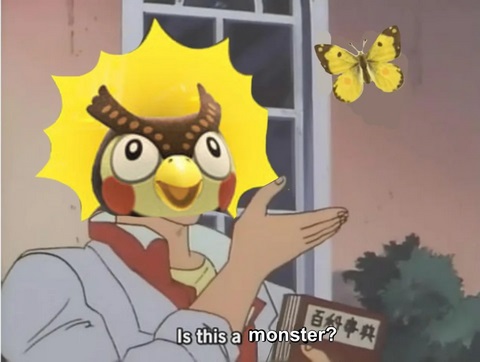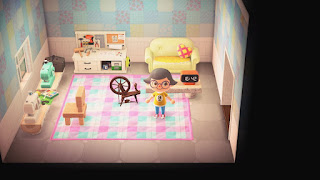Digital Technology. a graphical image that represents a person, as on the Internet.Avatars have saved my bacon several times during the pandemic. Let me explain how, and share a few theories as to why avatars are so important to people.
1) Facebook vs Bitmoji - which avatar is better?
On May 20, 2020 I jumped on the bandwagon and created my Facebook generated avatar. This article from Elite Daily by Daffany Chan tells me that it officially debuted on May 13, 2020 in America (North America?) but arrived earlier in Australia and Europe.
I did a bit of reading on the topic, as some users have not yet been able to access or create their virtual Facebook selves, (don't worry Emily Burns and Ruth Gretsinger - you'll get it eventually!) and I thought this quote from a geek.com article was telling:
You'll have to build your icon from the ground up; there is no option for Facebook to automatically generate an avatar based on a profile picture or selfie. “We want to make sure we don't show you something totally opposite of the photo,” Raimo explained. “There's sensitivity around facial recognition.”Jun 4, 2019
How we look is very important, even in online environments. Images are representative, either in a realistic or an idealistic way. (I lean towards "accuracy" in my creations, but more on that later.) My post generated a large amount of responses from my friends and family, weighing in on how similar my creation is to my actual face. I commented that I was quite fond of the nose on the Facebook version. I have a "Roman nose" (or "big nose" if you speak to some of my filter-free students) and prominent probosces aren't always considered beautiful in Western culture, so it's rare to find a variety of detailed and different noses on avatar creators. Compare it to the Bitmoji version of me.
Representation matters. People can have very strong reactions to their avatars - either they "look nothing like me" or individuals choose to use their avatar in lieu of real photos of themselves. (I wonder if the recent trend for "virtual classroom spaces" featuring teachers' Bitmojis "on location" is a way to "be in class" when we cannot. It's very popular to create these right now.)
Making my avatar, sharing my avatar, comparing my avatar - this has been a fun distraction and a way to connect with others when we can't congregate physically to socialize.
2) Yearbook Group Shots
In this time of uncertainty, when many teachers wonder if all their efforts are worth it, creating the school yearbook has provided me with a much-needed sense of meaning and purpose. Usually creating the yearbook involves a lot of stress (as I wrote about here back in 2015) but this year's project, unlike some of my recent online lessons, feels like the work was for the greater good and important not just to me.
One of the biggest challenges was that, due to the strikes and the premature end of our physical time together at school, we did not have the opportunity to take photos of the (reduced number of ) clubs we ran this 2019-20 school year. How do we still represent them visually in the yearbook? One of the solutions was to use avatars. Andrew Li (yes, the same Andrew I've mentioned multiple times on this blog) offered to lend a hand and recommended we use avatars for a few of the group shots. Thanks to the organizational skills of Farah Wadia (who, I should mention, was simultaneously managing her Grade 7-8 class of 34 students online, with preparing videos, arranging Google Meets, modifying activities and marking assignments while providing feedback during all of this extra support she provided us), she generated a Google Form to consult with student members of the clubs that were getting the "avatar treatment" in the yearbook. We needed the students' consent to either make an avatar for them or to reproduce an avatar they created of themselves. Students who did not respond had their name included without a "photo", just like if they were absent during the picture-taking day for the club.
I feel it is safe enough to share two of the composites, since I won't include the names of the students seen. One is for the Eco Club (done in the style of Animal Crossing New Horizons) and the other shown below is for the Volleyball Team (done in the style of Pokemon trainers). I found it fascinating that many of the students that created their own avatars for the group project did not try to aim for something that resembled them the most; they created versions of themselves that (I suspect) they found most aesthetically pleasing to them. Or was it because they were unfamiliar with the technical aspects of the avatar generator? I noticed a lot of light-brown-haired individuals, which is interesting when my school is predominantly made up of students from an Asian or South Asian heritage (which means the most common hue is of black or very dark brown hair). The students that created their own avatars went for more creative, idealized, or "metaphorical" representations of themselves, instead of my attempts to "keep it real".
Obtaining consent to create the avatars, creating and collecting student avatars, and assembling them into a group photo for the yearbook was a worthwhile endeavor that filled my days and helped make the yearbook feel completed in a way that a "no photo available" square would not have done.
3) Animal Crossing New Horizons Dress-Up
My hair is making me rather discontented with my appearance lately. I have short hair and I cannot get it cut - and I refuse to break the rules by arranging for clandestine appointments. I'm feeling very unmotivated to try and transform it in any significant way (other than washing it 30 minutes before I'm scheduled for a Zoom or Google Meeting appearance online). Other than my Covid-19 Animal Crossing t-shirt that I want my husband to order for me, I have no interest in new clothes or dressing up. This weekend was supposed to be the annual Anime North convention and my eldest, who had been anticipating this for months, forlornly wore her cosplay outfit briefly before changing back into regular clothes.
This disdain for attending to my personal appearance isn't true, however, when I'm playing Animal Crossing: New Horizons (yes, I've found another way to sneak in new photos I've taken in-game). The Able Sisters are a pair of sibling hedgehogs that have their own clothing store on the island. Each day, they offer new stock and I spend thousands of bells buying the latest outfits. It's possible to also fly to Harv's Island for photo shoots. My family members have complimented me on how well put-together I look on ACNH and my husband has hinted that I should attempt to duplicate these stylish outfits in real life. It's much easier to select and purchase clothes for myself in a video game than IRL. For one, there's no concerns about whether or not the clothes fit - they always do in the game. Also, I can afford new clothes easily in ACNH. In addition to "personal remodeling", I like cleaning and redecorating my house much more in-game than I do with my actual house because it just takes a click of a button to transform walls and floors. (I'm now on my "final home loan" with Tom Nook, which means I own a basement. I've decided to rotate my kitchen between 2-3 of my favourite designs and my upstairs is my exercise room and big bathroom while my basement is currently my music room.)
The ironic thing is that, even though I can switch my hair style and colour easily in the game, I've kept it to its current grey with long wispy sides. Why haven't I cut or coloured my hair in the game? I'm not sure - I think it's the signal that despite the beautiful clothes, it's still me or a version of me on the screen.
 |
| Me with blue overalls - I want this outfit IRL! |
 |
| I wear this peasant blouse a lot in-game |
 |
| I wear a lot more dresses than I do normally |
 |
| I love how coordinated this ensemble is |
 |
| Hubby says he can picture me actually wearing this |
 |
| Even quirky outfits like this grape one can work! |
Selecting outfits for my ACNH avatar and taking photos of my ACNH avatar have, in the wonderful words of author / illustrator Debbie Ridpath Ohi, been therapeutic - it's balm for my emotional and social well-being that's given me an outlet for my creativity.
Anyone else find #AnimalCrossing therapeutic during the pandemic? Also finding many fun ways to get books & book-themed art into #AnimalCrossing! Working on a blog post about this (that means playing AC is work-related, RIGHT??). pic.twitter.com/0fKdZhxFei— Debbie Ridpath Ohi (@inkyelbows) May 24, 2020







































